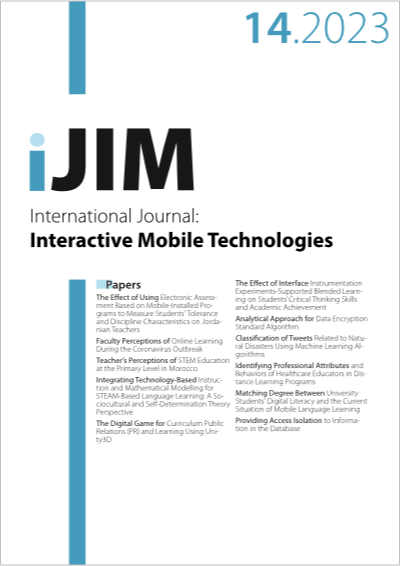Integrating Technology-Based Instruction and Mathematical Modelling for STEAM-Based Language Learning: A Sociocultural and Self-Determination Theory Perspective
DOI:
https://doi.org/10.3991/ijim.v17i14.39477Keywords:
EFL learners, language learning, mathematical modelling, STEAM, technology-based instructionAbstract
This paper presents a conceptual framework that combines technology-based instruction and mathematical modeling in a STEAM-oriented approach to enhance the English language acquisition of Malaysian students. The proposed framework consists of a six-month English as a Foreign Language program that integrates technology and mathematical simulation in a STEAM-oriented methodology. The exercises are designed to enhance linguistic competence, with a focus on improving listening, speaking, reading, and writing skills. The framework aims to foster a positive learning environment that encourages self-determination and promotes sociocultural interaction. The integration of technology-enabled instruction and mathematical modeling offers a viable strategy for enhancing the language competency of non-native English speakers. However, further research and empirical analysis are necessary to evaluate the impact of this framework on academic performance. Despite this limitation, the proposed framework offers a promising approach to address the challenges faced by less proficient Malaysian students in acquiring English language skills. In conclusion, this paper presents a conceptual framework that integrates technology-based instruction and mathematical modeling in a STEAM-oriented approach to enhance the English language acquisition of less proficient Malaysian students. The framework is grounded in sociocultural and self-determination theoretical perspectives and aims to create a positive learning environment that promotes linguistic competence.
Downloads
Published
How to Cite
Issue
Section
License
Copyright (c) 2023 Mohd Rashid Mohd Saad, Simah Mamat, Riyan Hidayat, Abdul Jalil Othman

This work is licensed under a Creative Commons Attribution 4.0 International License.



